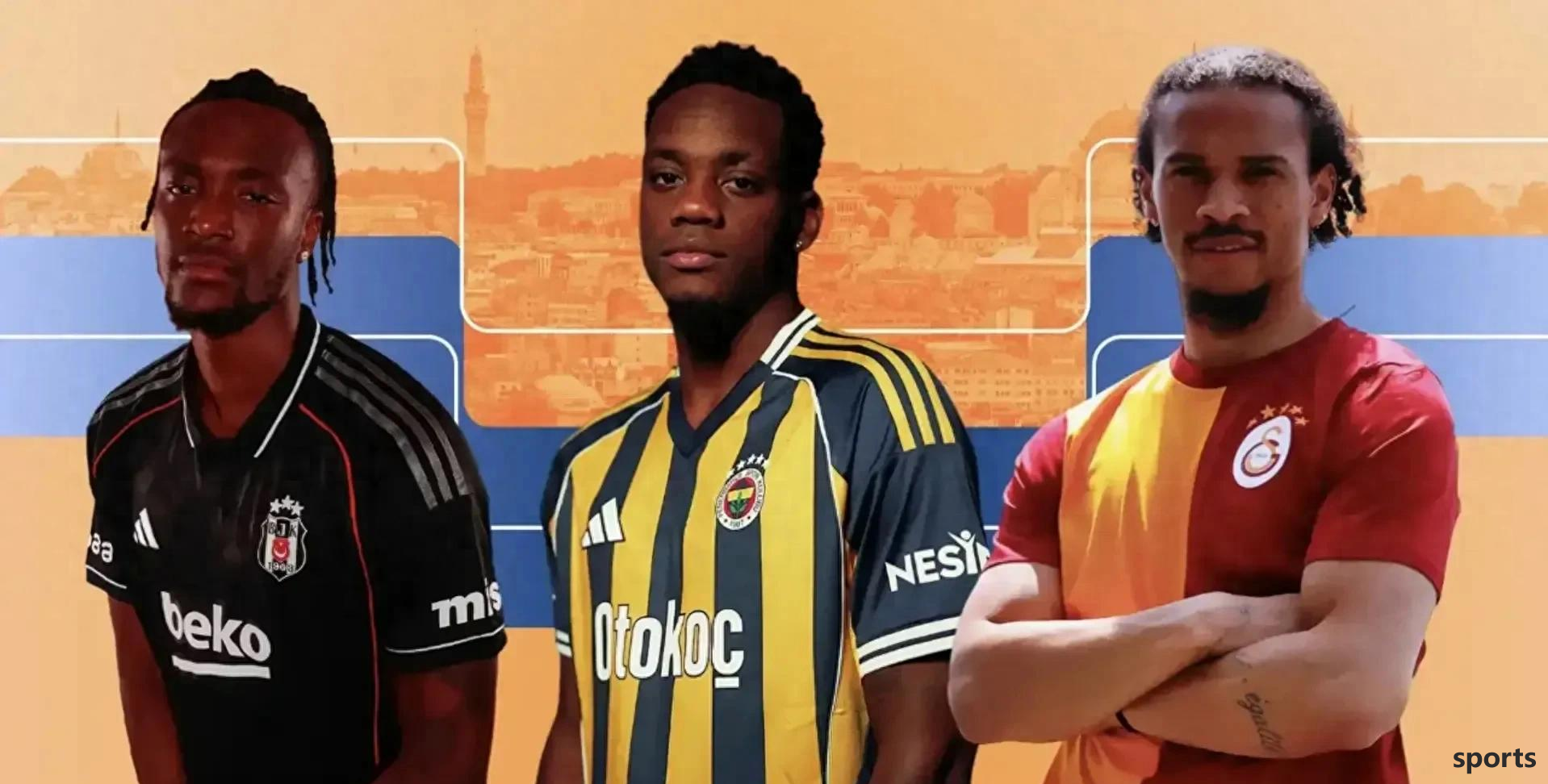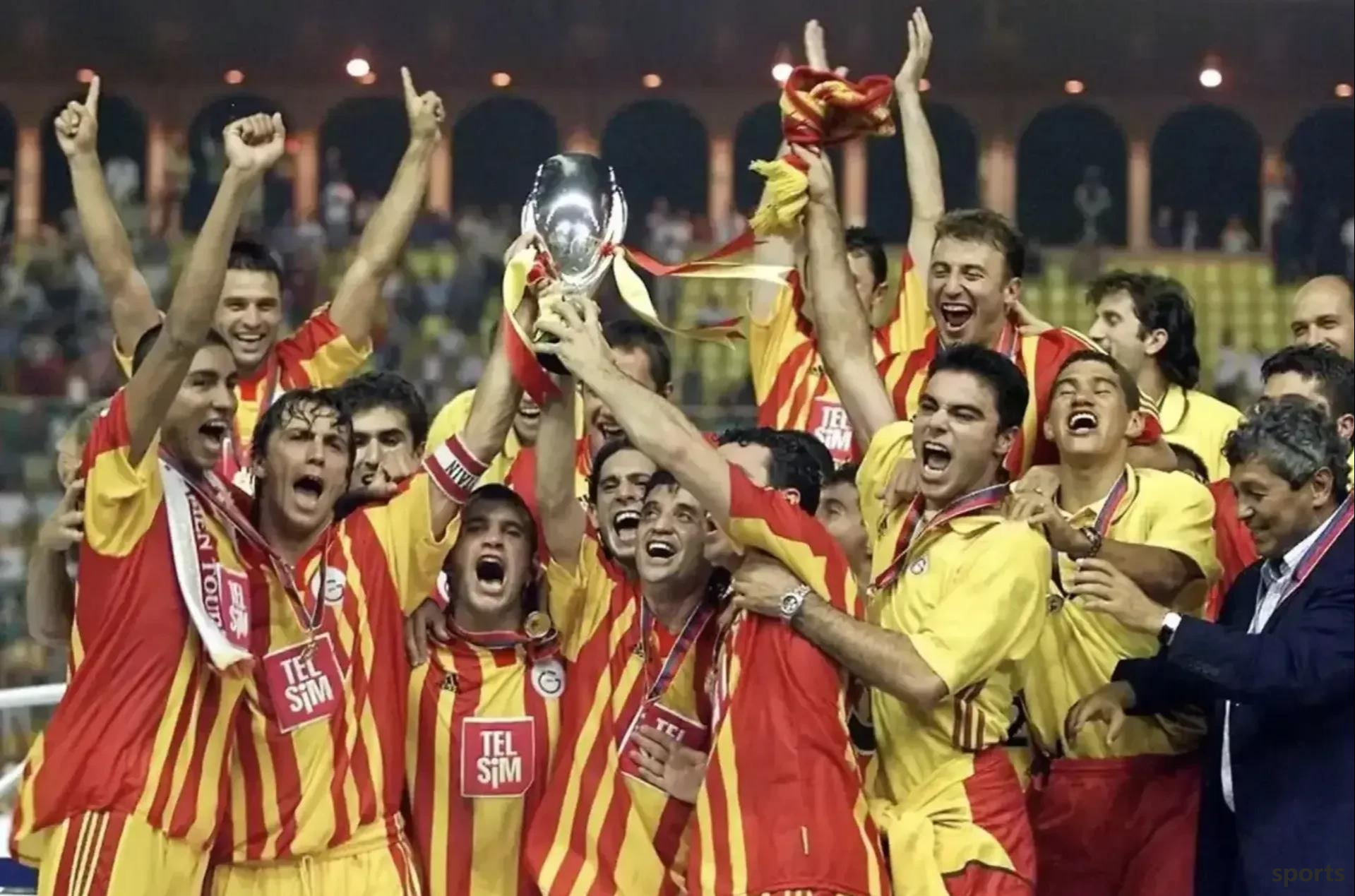Many fans have a unique pastime: browse the Turkish club lineup and find familiar names
3:46pm, 26 July 2025Football
Many fans have a unique pastime: browse the Turkish club lineup and find familiar names. You can try it now and click on the label of the Turkish Super League. Even for teams outside the "Four Big Leagues", you can find many well-known players.
For example, in Besiktas, you will see Abraham (formerly played for Milan, Roma, Chelsea), Rafa Silva (formerly played for Benfica), Chamberlain (formerly played for Liverpool, Arsenal), and many foreign players with a little less famous but still powerful ones.
But where did the Turkish club get so much money to build a luxurious lineup? Especially considering that Türkiye's economy has been in crisis for many years, the recovery is nowhere to be achieved. Let's find out.
fans demanded the stars - they had the final say

The early 21st century was the golden age of Turkish football. Galatasaray won the League Cup and the European Super Cup, with Romanian stars Popescu and Haji, as well as Brazil's World Cup champion goalkeeper Tafarer. Although the team's core is a local player, success is impossible without these foreign players.
Two years later, the Turkish national team won the third place in the 2002 World Cup, making history. Turkish football has reached a new level and is not only the most popular sport, but also the cornerstone of national identity. Erdogan's power further reinforces this shift.
The former mayor of Istanbul played semi-professional football until he was 27 years old, and there were even rumors that Fenerbahce wanted to sign him. Truth depends on his biographer Sultan Fatih Kara. It is undeniable that Erdogan’s passion and consistent support for football. He even played for IETT Spor (Istanbul Public Transportation Bureau Club), nominally an employee, but his main task was to play football.
In the 2000s, a joke circulated among Turkish journalists: "The champion was born at the airport", referring to the almost fanatical welcome of Turkish fans to the newly joined stars. Fans have become the driving force for big-name signings, because Türkiye's football giants are all member-based citizens' associations, a bit like Real Madrid and Barcelona in Spain.
Club members elect the chairman every three years, and in order to win support, the chairman will introduce big-name stars. Populism is a strategy to maintain power, and transfer competitions mean there is always pressure to please fans. If someone signs Drogba, the next one has to respond with Van Persia. That's why every new president of Galatasaray or Besiktas promises to win the Champions League title in his campaign.
To overwhelm the opponent by signing bigger stars has become the core mission of Türkiye's top clubs. Fans flocked to the stadium to watch the stars perform, spreading the fanatic atmosphere of Turkish football throughout Europe.
As for the funds behind these gorgeous transfers, it is a much more complicated story.
How can Turkish clubs make money?

Let's talk about the positive side first, thanks to their fan base. Turkish club tickets are selling well, especially the giants. In the 2023/2024 season, Galatasaray ranked 16th in Europe for ticket revenue (59 million euros). Galatasaray's daily income per game was 2.3 million euros, Fenerbahce was 1.5 million euros, and Besiktas was 1.1 million euros. All three clubs were in the top 50 in Europe.
In addition, the Turkish clubs are also very successful in selling goods and surrounding areas. Fenerbahce's annual revenue comes from commodity sales, Galatasaray is 34%, and Besiktas is 29%, leading European clubs in terms of fan product revenue to total revenue. Turkish fans are keen on buying jerseys with the new player's name printed on it.
Don't forget the sponsors, they bring tens of millions of euros each year. For example, Galatasaray earned €20 million for sponsorship agreement alone. In terms of television broadcasting rights, the club earns about 10 million euros per year.
In 2015, Qatar media giant BeIN spent $500 million to buy the Turkish Super League broadcast rights, and what he valued was its huge global fan base. The club also used modern means: Galatasaray launched its own cryptocurrency and sold tokens to fans, raising $25 million. They also sold hundreds of thousands of dollars worth of NFTs to their supporters.
The good news is probably all because after Türkiye's attempted coup in 2016, the economy began to weaken. Many clubs are state-supported political projects. Many Turkish clubs are funded by the government, and officials want to bring their distance from voters and support Erdogan's political agenda.
Istanbul Sports are managed by relatives of the Erdogan family. Basakheir represents a strong support for Erdogan, so it must be a strong club. Caspassa is from Erdogan's birthplace and therefore has also been supported.
Obviously, these clubs are not self-profit and losses, but rely on subsidies. Turkish journalists estimate that in the early 2020s, at least 20 clubs in Türkiye had state-owned capital backgrounds.
In the past, they spent money like soil, but now they are barely able to make ends meet. Many clubs that once made big signings are now barely able to make ends meet. Antalya Sports has signed Etoo, Nasri and Shahin over the past decade, but now it can't even afford €5 million to repay its debts.
The most shocking example is Bursa Sports, the 2010 champion and UEFA Champions League team, which later fell to the third-tier league, with debt of nearly 50 million euros even with a strong government backend. This decline is common for small clubs in Türkiye.
Broadcasting rights and piracy issues
The profits from the lucrative BeIN TV contract are lower than expected because Türkiye has failed to effectively combat piracy. The league's attention is also declining, with the next TV broadcast contract shrinking from $500 million to $370 million. Fenerbahce is very dissatisfied with BeIN and accuses its commentators of being biased against their team.
Turkish giants are deeply involved in debt but continue to buy thrifty clubs in Turkey, if they were not for the enthusiasm of fans, they might have gone bankrupt long ago. About 80% of Turkish fans support one of Galatasaray, Fenerbahce, Besiktas or Trabzon sports. Any team disappears or is relegated to social unrest. Considering that the fan group is often not loyal to the government, no one dares to take this risk.
At some point after the COVID-19 pandemic, the debts of the "Four Great Families" became so huge that the country had to take action to rescue them. Banking Union, under the national guarantee, paid off debts totaling more than 1 billion euros for the club. Currently, top clubs still owe money from the Banking Union:
* Besiktas - 85.6 million euros
* Fenerbahce - 70.1 million euros
* Galatasaray - 28.1 million euros
Trabzon Sports has successfully paid off its debts to the Banking Union, but that does not mean it is debt-free as a whole. The money owed to the bank is only part of the club's debt. They also have other ongoing liabilities.
As of February 2025, the total debt was:
* Galatasaray - 293 million euros
* Fenerbahce - 255 million euros
* Besiktas - 209 million euros
* Trabzon Sports - 184 million euros
This is just a top club, and the total debt of the Turkish club reached 2 billion euros. Domestic inflation is also a heavy blow, because the club income is lira, but wages and transfer fees must be paid in euros. The result is that they have to borrow new debts to pay off old debts.
The Turkish Football Association tries to limit club transfer spending through its own "Financial Fairness Act", but as long as one club completes a major signing, other clubs will try to follow up. The giant clubs have never been severely punished, which means Galatasaray can continue to sign Sane with an annual salary of 15 million euros and bring in Osmeen for another 75 million euros. To this end, Galatasaray sold the training base in the prime location of Istanbul for real estate development, but instead of paying off the debt, they hurried into signings again. Because in Türkiye, the champion was born from the airport.
source:7m cn vn comRelated Posts
- Kane: To be honest, I didn t expect Levi to leave Tottenham, he is always an outstanding chairman
- Fierce firepower! Spain shot first in the European League
- Finals scored, 37-year-old Benzema won the best double championship
- Leadership! Italy chases time-sharing Doncic calmly encourages his teammates to stay focused and keep moving forward
- Manchester United is one of the most popular clubs in the Premier League, every team
- Barcelona s strongest left winger is already in the team! Messi has pointed out that Frick should not be confused
- Slot confirmed that Nunez might leave the team, saying it doesn t matter if he can t sign Isaac
- German media: Bayern was willing to sell Gretzka before the summer window, but now he will not be allowed to leave the team
- Super unpopular! 5 million beat 135 million! Ronaldo and Messi are all eliminated
